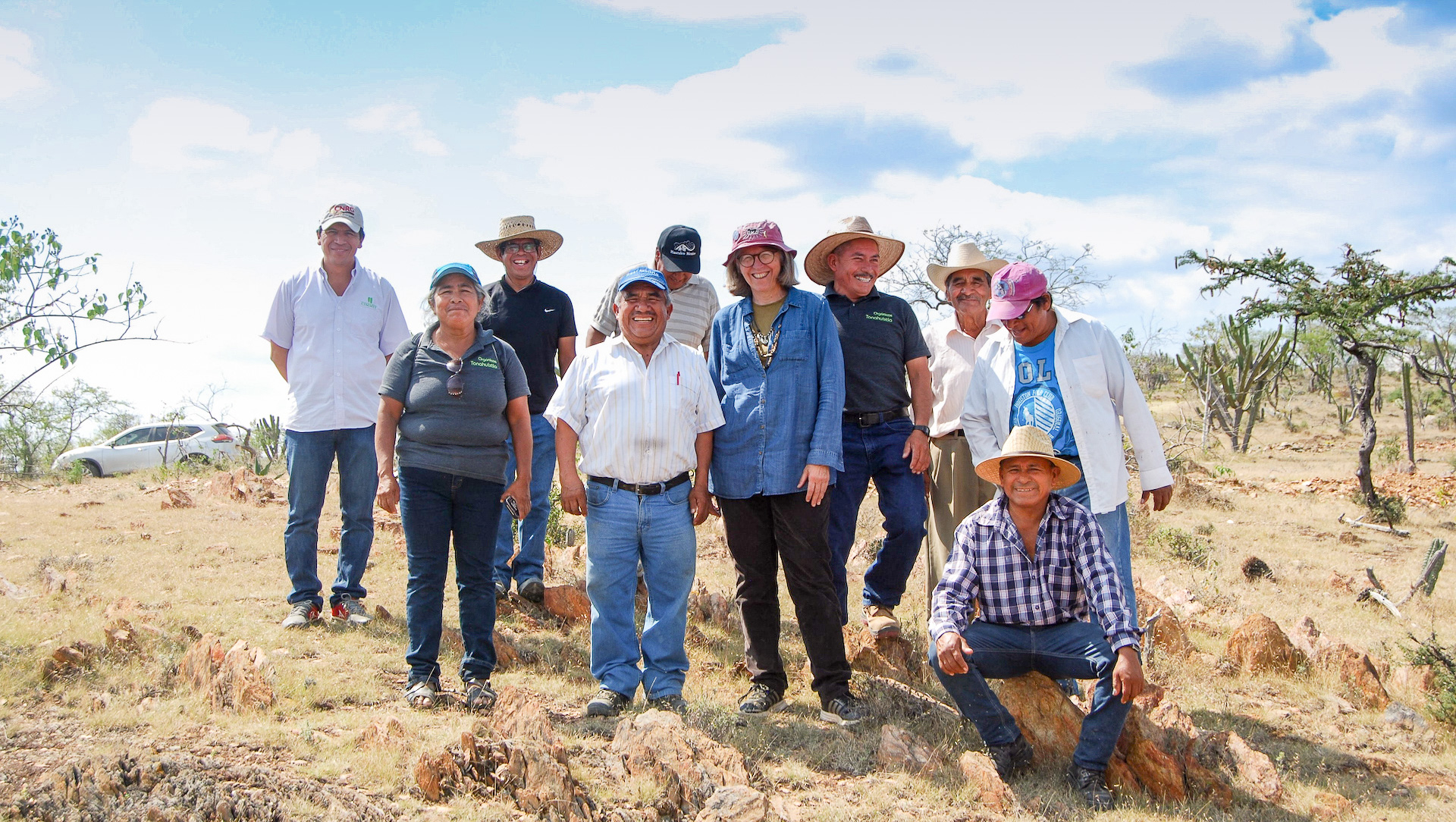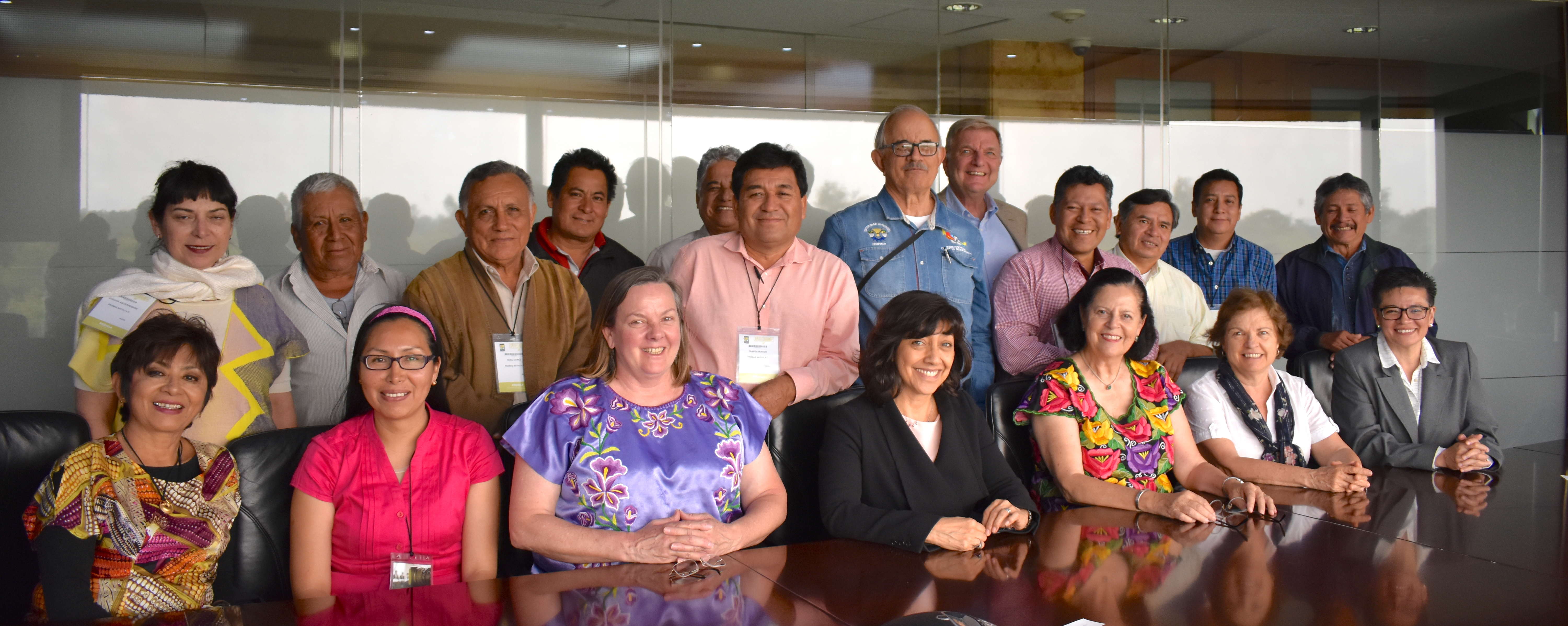The CGIAR Research Program on Maize (MAIZE) is pleased to announce the winners of the 2019 MAIZE Youth Innovators Awards – Latin America. These awards recognize the contributions of young women and men under 35 who are implementing innovations in Latin American maize-based agri-food systems, including research for development, seed systems, agribusiness, and sustainable intensification.
The winners will attend the 23rd Latin American Maize Reunion (XXIII Reunión Latinoamericana del Maíz) in Monteria, Colombia, where they will receive their awards and present their work. Award recipients may also get the opportunity to collaborate with MAIZE and its partner scientists in Latin America on implementing or furthering their innovations.
This is the third instalment of the awards, following Asia in October 2018 and Africa in May 2019.
Congratulations to this year’s winners, seven exceptional young people working in Latin American maize-based systems:
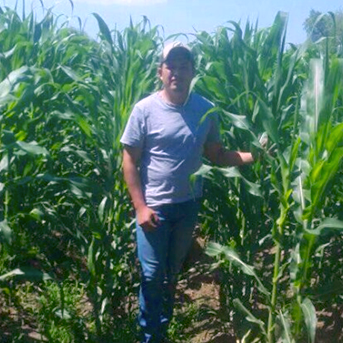
Eduardo Cruz Rojo (Mexico) – Farmer category
Eduardo Cruz Rojo is a young agricultural entrepreneur, worried about rural out-migration in his region and about the poor agricultural practices that have led farming to cease to be profitable. He has a degree in logistics, and is originally from Alfajayucan, in Mexico’s state of Hidalgo. For the past four years he has been working on maize research and production, with a focus on improved agronomic practices that help farmers increase their yields. This includes soil improvement, organic fertilizers, earthworm compost and biological pest control. Through research and testing, he has shown smallholder farmers the cost-benefit of improved agricultural practices. This has been reflected in local farmers achieving improved soils and yields in an environmentally friendly manner.
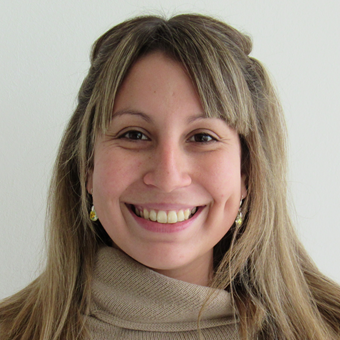
Yésica Chazarreta (Argentina) – Researcher category
Yésica Chazarreta has a degree in genetics and is currently a doctoral fellow at the Scientific and Technologic Fund, working with the Crop Ecophysiology group at the National Agricultural Technology Institute (INTA) Pergamino in Buenos Aires, Argentina. Her work centers on understanding the genetic and environmental control of the physiological determinants of filling, drying and quality of maize grains in genotypes destined for grain or silage. The objective is to generate knowledge to continue advancing in maize production improvement and to open the possibility of establishing improvement programs differentiated by planting times for her region, as well as to provide valuable information for the creation of mechanistic models to predict the evolution of humidity in maize grains. This information can help farmers make more informed decisions about the best time to harvest. In addition, Chazarreta hopes to deepen understanding of maize biomass quality for animal feed, a practice that has increased in her native country, Argentina, due to changes in crop management practices related to delays in planting dates.
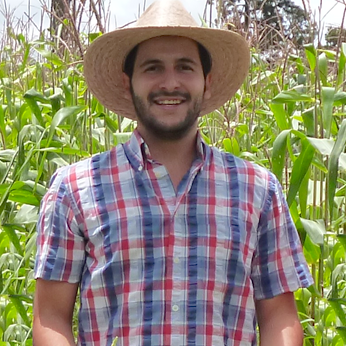
Omar Garcilazo Rahme (Mexico) – Researcher category
Omar Garcilazo Rahme is a postgraduate student researching sustainable management of agro-ecosystems at the Meritorious Autonomous University of Puebla (BUAP).
A food engineer by training, he has a profound interest in Mexico’s bio-cultural heritage and maize as a staple food in his native country, as well as the various methods to produce and conserve the crop. His research project seeks to improve the economic, nutritious and sociocultural benefits associated with the production of maize.
He is currently collaborating in a technology transfer and innovation agency on the topics of nutritional labeling, big data and applied technology solutions for the agri-food industry.
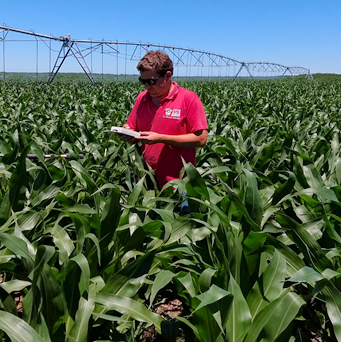
Lucio Reinoso (Argentina) – Researcher category
Lucio Reinoso is an agronomist with a master’s degree in agricultural sciences from the National Southern University, Argentina. He has worked as a professor at the National University of Rio Negro since 2019. Reinoso was a fellow and researcher for 12 years at the National Institute for Agricultural Technology (INTA).
He works on sustainable models of maize production under irrigation in the irrigated valleys of Northern Patagonia, Argentina. Reinoso is specifically investigating the adaptation of maize to the soil and climatic conditions of the region, highlighting the water and nutritional needs to maximize production while also caring for the environment.
He works with local farmers to adapt no-till farming to scale and adjust irrigation management to improve water use efficiency while preserving the physical, chemical and biological characteristics of soil, increasing resilience.
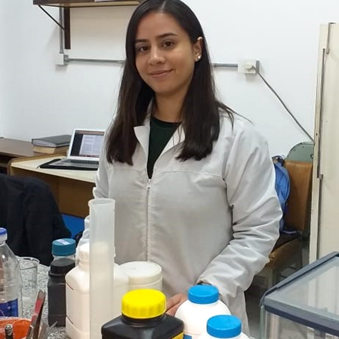
Viviana López Ramírez (Colombia) – Researcher category
Viviana López Ramírez is a biological engineer with a master’s degree in environmental studies from the National University of Colombia in Medellin.
She is currently a doctoral student in biological sciences at the National University in Río Cuarto, Argentina, studying the application of bacteriocins for the biological control of phytopathogens.
This work on bacteriosis in maize is conducted by a multidisciplinary team and focuses on the identification of pathogenic bacteria isolated from a diverse maize population.
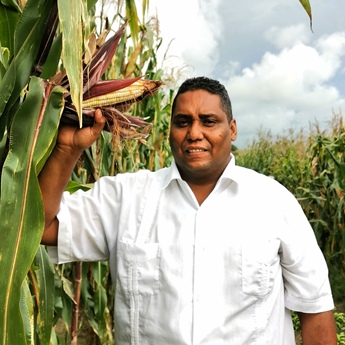
José Esteban Sotelo Mariche (Mexico) – Change Agent category
José Esteban Sotelo Mariche is an agronomist from the coastal region of Oaxaca, Mexico. He studied at Chapingo Autonomous University and is certified in rural development and food security.
Since 2012 he has offered capacity building to smallholder maize farmers in his region. In 2014 he formed Integradora Agroempresarial del Rio Verde to promote the production and commercialization of agricultural products. The group now has 80 members, including indigenous and Afro-Mexican farmers. In 2016 he began working with tortilla company Masienda to help local farmers export native maize to gourmet restaurants in the United States.
Most recently he has worked on the integration of the Center for Rural Technology Transfer and Validation (Centro de Validación y Transferencia de Tecnología Rural) to evaluate conservation agriculture systems, efficient water use and agroforestry. This space also serves to provide training activities and technical assistance to local farmers.
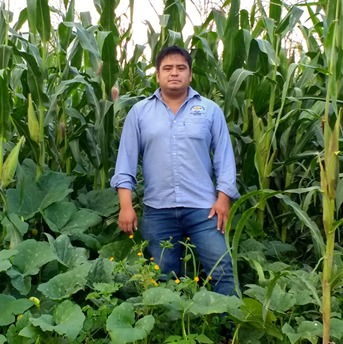
Carlos Barragan (Mexico) – Change Agent category
Carlos Barragan has a degree in agroecological engineering from Chapingo Autonomous University.
He collaborates with the MasAgro project in Mexico’s state of Oaxaca, helping to adapt small-scale production systems to climate change.
He also contributes to work on soil fertility as well as inclusive business models for smallholder farmers working in agri-food value chains.
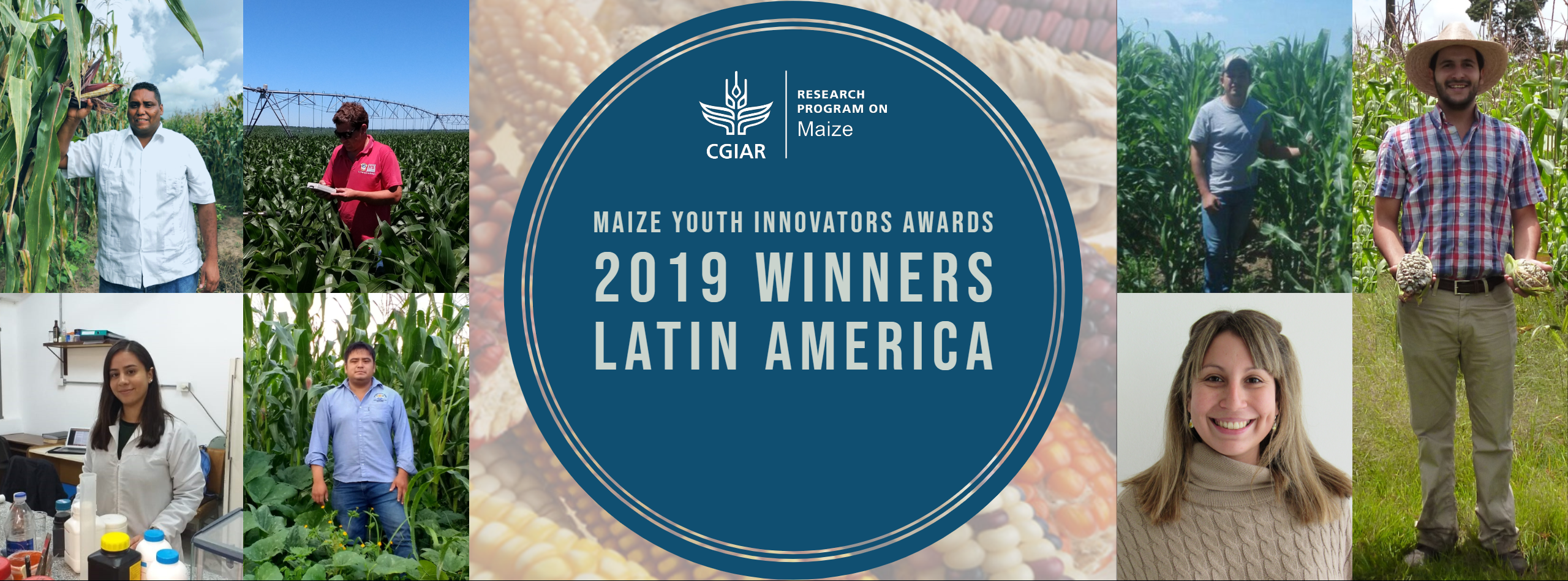
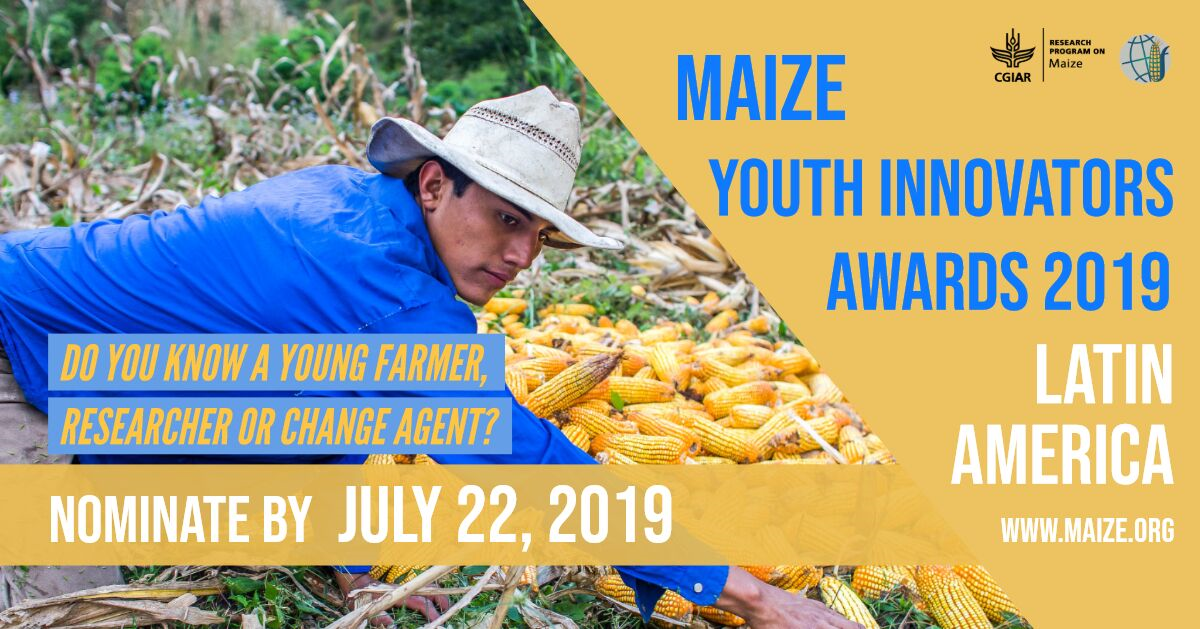
 Gender equality, youth and social inclusion
Gender equality, youth and social inclusion 